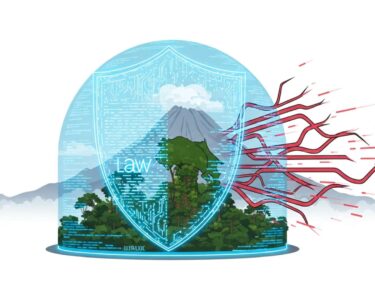San José, Costa Rica – In a strategic move to bolster its digital defenses, Costa Rica is making major investments in its cybersecurity infrastructure. The country is targeting an increasing wave of cyberattacks that have affected critical infrastructure and the private sector. Key among these advancements is the establishment of a cutting-edge forensic laboratory aimed at addressing cybercrime more effectively.
The new forensic laboratory, part of Costa Rica’s National Strategy for Cybersecurity, is expected to significantly enhance the country’s ability to investigate and prosecute digital crimes. Equipped with advanced technology, the lab will enable law enforcement to analyze digital evidence thoroughly and pursue cybercriminals with greater efficiency. This laboratory not only aims to respond to attacks but also to prevent them by identifying vulnerabilities in digital systems, working closely with both private and public sector entities.
This is part of the goals contained in the National Cybersecurity Strategy 2023-2027 of the MICITT that focuses on five fundamental pillars: governance, legal framework, risk management, cybersecurity culture and international cooperation and is complemented by initiatives such as the Digital Transformation Strategy, the creation of the National Digital Government Agency
Paula Bogantes Zamora, MICITT hierarch
As Costa Rica increasingly digitizes essential services like healthcare, finance, and utilities, the risk of disruption from cyber threats has grown. Recognizing the gravity of the situation, the government has prioritized strengthening the country’s digital infrastructure. Alongside the forensic laboratory, a National Cybersecurity Operations Center is being established to serve as a central hub for monitoring and responding to cyber threats. Staffed by skilled professionals, this center will operate around the clock to ensure rapid detection and mitigation of incidents.
International collaboration has been a cornerstone of Costa Rica’s cybersecurity strategy. The United States has provided substantial technical and financial support, including training programs and advisory services to local experts. The U.S. Department of State’s backing has strengthened Costa Rica’s defensive capabilities against emerging cyber threats, facilitating knowledge sharing and intelligence cooperation. Furthermore, the European Union and the Organization of American States (OAS) have played pivotal roles in funding training programs and aligning Costa Rica’s cybersecurity practices with global standards.
In addition to international support, Costa Rica has also introduced new legislation to tighten its cybersecurity framework. The laws establish stricter penalties for cybercrime and mandate organizations to report incidents and implement robust security measures. The government has paired these legal reforms with public awareness campaigns to promote cybersecurity best practices, aiming to create a culture of vigilance among citizens and institutions.
Costa Rica’s financial sector has been a key focus of these cybersecurity efforts. Given that banks are prime targets for cybercriminals, the government has collaborated closely with financial institutions to enhance security protocols and implement advanced protective measures. Training programs and technical assistance are also being provided to banks to bolster their ability to withstand cyber threats.
Education and training form another crucial pillar of Costa Rica’s cybersecurity strategy. The government is working with universities and technical colleges to develop specialized courses and certifications, aiming to build a skilled workforce capable of addressing evolving cyber challenges. Additionally, training initiatives for professionals in both public and private sectors are underway to ensure preparedness across all levels.
These coordinated initiatives are placing Costa Rica at the forefront of cybersecurity resilience in the region. By investing in technological infrastructure and strengthening international ties, the country is setting a precedent for effective digital protection. As more services and activities migrate online, Costa Rica’s proactive measures to secure its digital ecosystem signal a firm commitment to safeguarding citizens and businesses.
This laboratory increases the response capacity in our country, mainly in the containment of computer security events that is the day to day of public and private companies, and also increases the forensic and investigative capacity, since many of these incidents become crimes that will be investigated by the OIJ, which favors our work
Erick Lewis, head of the Specialized Section Against Cybercrime of the Investigation Agency (OIJ)
The collaborative efforts and investments made by Costa Rica underscore the government’s dedication to creating a robust digital defense. By leveraging global expertise and developing local capabilities, Costa Rica is on a path to becoming a regional leader in cybersecurity.
About Costa Rica’s National Cybersecurity Strategy:
Costa Rica’s National Cybersecurity Strategy is a comprehensive plan that focuses on strengthening the country’s digital defenses through strategic investments in technology, training, and international cooperation. The strategy aims to enhance the nation’s resilience to cyber threats, protect critical infrastructure, and promote a secure digital environment for all citizens and businesses.









